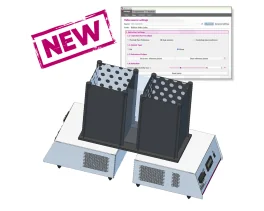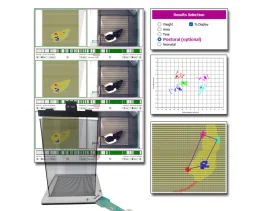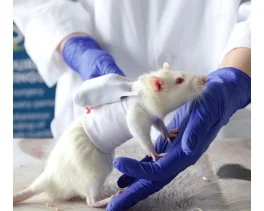Authors
S. Kelaï, T. Renoir, L. Chouchana, F. Saurini, N. Hanoun et al.
Lab
UPMC Univ Paris 06, UMR-5677, Neuropsychopharmacologie, Paris, France ; INSERM UMR-5677, Neuropsychopharmacologie, Paris, France
Journal
Journal of Neurochemistry
Abstract
Alcoholism is a complex disorder involving, among others, the serotoninergic (5-HT) system, mainly regulated by 5-HT1A autoreceptors in the dorsal raphe nucleus. 5-HT1A autoreceptor desensitization induced by chronic 5-HT reuptake inactivation has been associated with a decrease in ethanol intake in mice. We investigated here whether, conversely, chronic ethanol intake could induce 5-HT1A autoreceptor supersensitivity, thereby contributing to the maintenance of high ethanol consumption. C57BL/6J mice were subjected to a progressive ethanol intake procedure in a free-choice paradigm (3–10% ethanol versus tap water; 21 days) and 5-HT1A autoreceptor functional state was assessed using different approaches. Acute administration of the 5-HT1A receptor agonist ipsapirone decreased the rate of tryptophan hydroxylation in striatum, and this effect was significantly larger (+75%) in mice that drank ethanol than in those drinking water. Furthermore, ethanol intake produced both an increased potency (+45%) of ipsapirone to inhibit the firing of 5-HT neurons, and a raise (+35%) in 5-HT1A autoreceptor-mediated stimulation of [35S]GTP-_-S binding in the dorsal raphe nucleus. These data showed that chronic voluntary ethanol intake in C57BL/6J mice induced 5-HT1A autoreceptor supersensitivity, at the origin of a 5-HT neurotransmission deficit, which might be causally related to the addictive effects of ethanol intake.
Keywords/Topics
Domaines de recherche divers
Source :
http://onlinelibrary.wiley.com/doi/10.1111/j.1471-4159.2008.05733.x/full

 Douleur - Allodynie/Hyperalgésie Thermique
Douleur - Allodynie/Hyperalgésie Thermique Douleur - Spontanée - Déficit de Posture
Douleur - Spontanée - Déficit de Posture Douleur - Allodynie/Hyperalgésie Mécanique
Douleur - Allodynie/Hyperalgésie Mécanique Apprentissage/Mémoire - Attention - Addiction
Apprentissage/Mémoire - Attention - Addiction Physiologie & Recherche Respiratoire
Physiologie & Recherche Respiratoire




































 Douleur
Douleur Système Nerveux Central (SNC)
Système Nerveux Central (SNC)  Neurodégénérescence
Neurodégénérescence Système sensoriel
Système sensoriel Système moteur
Système moteur Troubles de l'humeur
Troubles de l'humeur Autres pathologies
Autres pathologies Système musculaire
Système musculaire Articulations
Articulations Métabolisme
Métabolisme Thématiques transversales
Thématiques transversales Congrès & Meetings
Congrès & Meetings